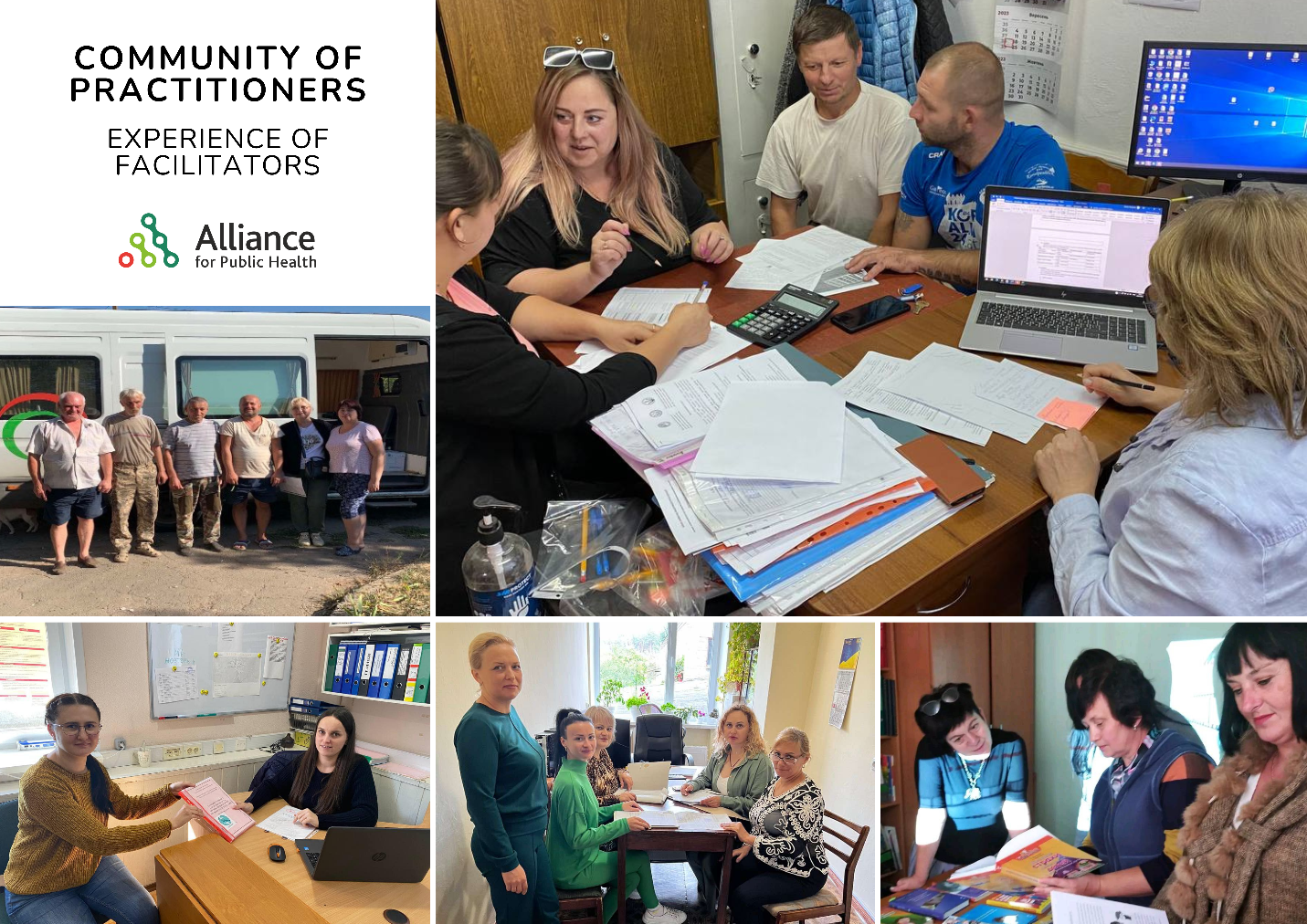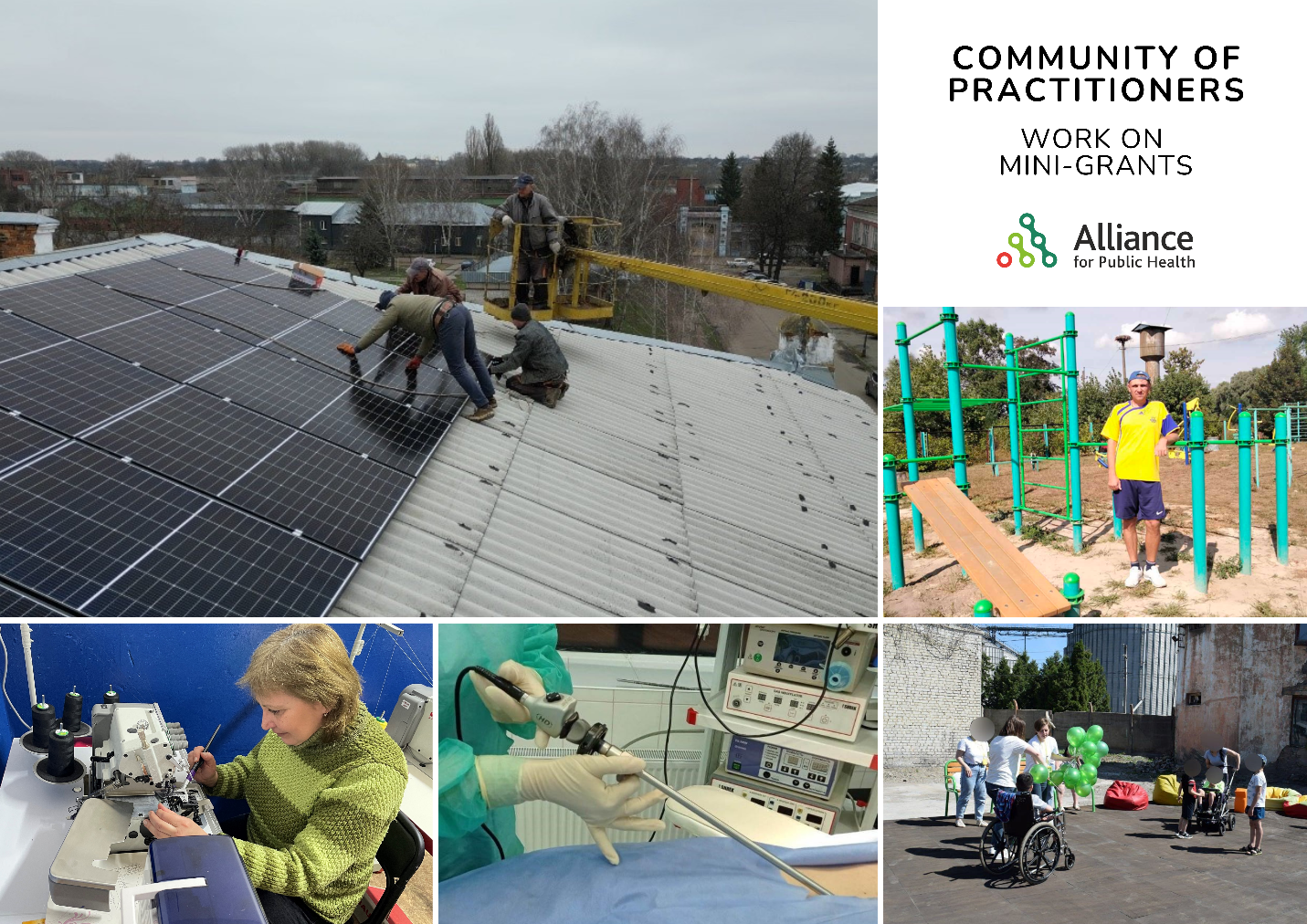CoP
CoP (community of practitioners) – a community of practitioners who have experience and work in Ukraine in the direction of “Supporting community initiatives” by providing them with mini-grants to implement various mini-projects that help solve urgent community problems. The community of practitioners came together to share experiences and best practices, discuss the main issues and obstacles in work, and jointly search for ways to solve problems and overcome obstacles.
Currently, this community unites specialists of partner NGOs in Ukraine who implement the “Supporting community initiatives” approach and are facilitators of regional initiative groups.
The community of practitioners operates as part of a project funded by the Church of Sweden (CoS) and with the technical support of Christian AID (Great Britain)
Mechanisms of cooperation of the community of practitioners are:
- Regular working meetings to discuss various issues related to the implementation of the approach,
- Methodical support (provision of instructions, standard documents, etc.),
- Individual consultations,
- Mentoring, etc.
You can join the community of practitioners by filling out the form at the link: https://forms.gle/anbEbgQKrWdoqEMN6
For additional information on the implementation of the “Support of community initiatives” approach, instructions for preparing applications, and samples of accompanying documents, please contact the community coordinator of practitioners, Yosef Yanyshyn yanyshyn@aph.org.ua.

Additionally:
Approach – “Supporting community initiatives” (SCLR – Survivor community-led response)
The initiative “Local to Global Protection” (L2GP) developed and implemented this approach. This is an international initiative of workers of humanitarian organizations and activists with diverse experience in humanitarian response. The primary objective of this initiative is to document and support local responses to protection, survival, and recovery during major humanitarian crises.
According to Local to Global Protection (L2GP), the first responders to any humanitarian crisis are the communities and the affected people, who mobilize to restore security and meet their immediate needs. Based on research conducted by Local to Global Protection (L2GP) and other agencies on how people respond to the crisis, a survivor-led crisis response including affected communities (SCLR) approach was developed as a means of enabling those survivors and groups in crisis-affected communities, the power and resources to take responsibility for their response.
In various countries, this approach has been used by non-governmental organizations for more than ten years to respond to crises and solve urgent problems. This approach contributes to the involvement of communities in joint actions, maintaining their stability and fundraising in the future.
During the war in Ukraine, the ICF “Alliance for Public Health” and its partner organizations began to use this approach as part of a complex of measures to respond to the crisis.
The main principles of the SCLR approach, which have become a priority for Ukraine:
- Communities are the first and last to respond to a crisis.
- All communities have a wealth of knowledge and skills to respond to emergency and long-term vulnerability.
- Responses on the ground can be much faster and more cost-effective than conventional relief or humanitarian efforts.
- Crisis response is strengthened when women and other marginalized groups can take responsibility and lead.
- Social connection and cohesion enhance crisis response and community resilience.
Ukrainian organizations that apply this approach provide mini-grants of up to $5,000 to local communities to quickly solve specific problems that are not covered by other financial sources or the state. Usually, a mini-project is implemented within 2-3 months.

The Community of Practitioners (CoP) can help in mastering the approach by providing methodological guidelines for the preparation of documentation and implementation of the project, and trained specialist facilitators working in the regions will mentor the initiative groups to rally them, prioritize the problems and needs of their community/community, which it is necessary to quickly solve and satisfy, to prepare an application for receiving a mini-grant, as well as to support mini-projects at all stages of their implementation.
Information about competitions for obtaining mini-grants is posted on the Internet resources of the Alliance, regional NGOs and public websites. Therefore, if you wish to receive funds for your community, we recommend following these resources.
· Handbook “Survivor and community-led crisis response: Ukrainian implementation experience”
· Examples of community initiatives (гіперпосилання на файл Mini-grants
· Results of the “Survivor and community-led crisis response (sclr) in Ukraine” project, with the financial and technical support of Act Church of Sweden, including fundraising and coordination with Christian Aid.
Survivor and community-led crisis response (SCLR) in Ukraine. Creation of safe conditions for receiving medical services for residents of the village of Novohrihorivka (Mykolaivska Oblast)
Survivor and community-led crisis response (SCLR) in Ukraine. Creation of a sensory room in the Kindergarten “Smile” in Zdolbuniv
EXPERIENCE IN IMPLEMENTING THE APPROACH WITH AND WITHOUT A REGIONAL FACILITATOR
IMPORTANCE OF THE SCLR APPROACH SUPPORT IN THE CONTEXT OF THE WAR IN UKRAINE
